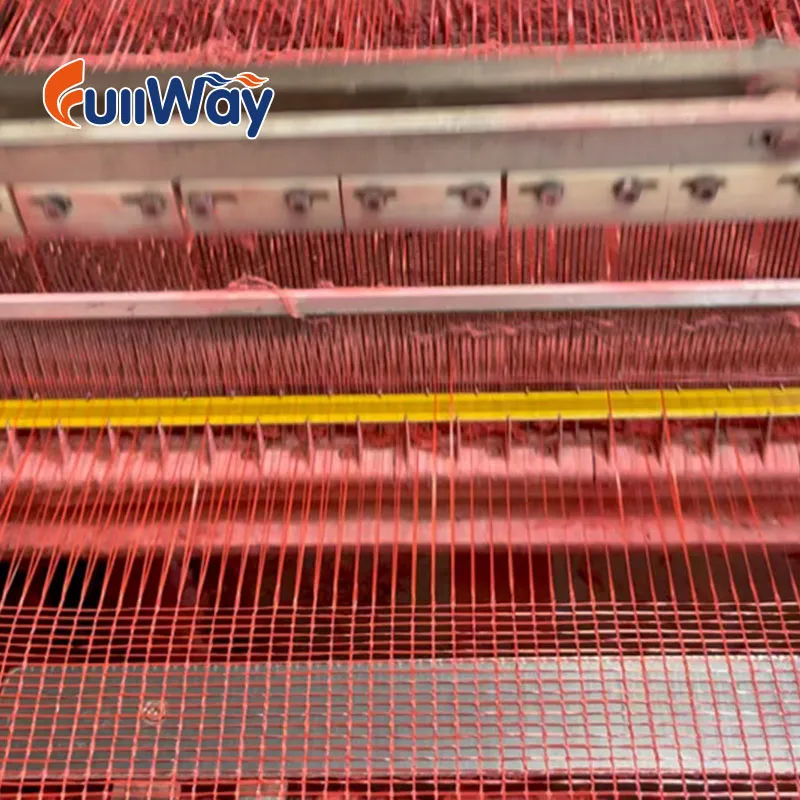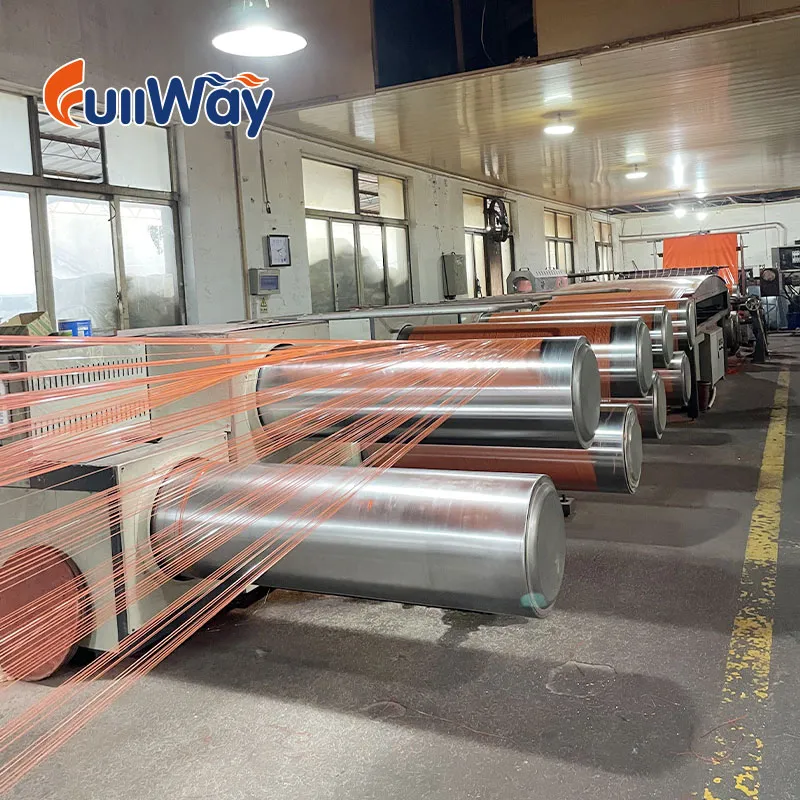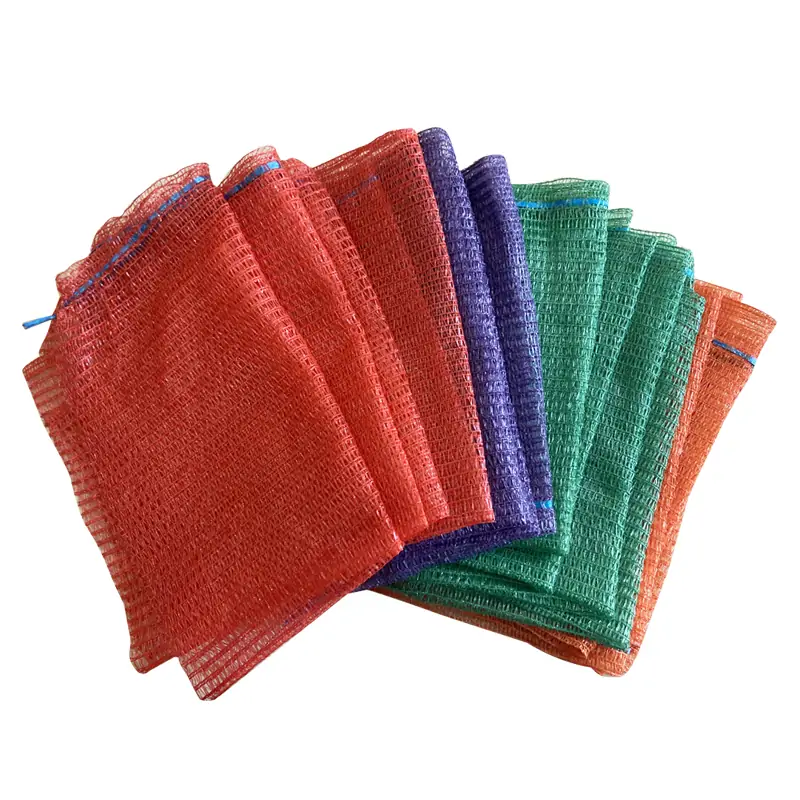Mesh bags are made of breathable and flexible materials. These bags have become a popular choice for storage, particularly fresh vegetables. They are designed to keep vegetables fresh and crisp for more extended periods.
Mesh bags are often made of cotton and polyester with small holes. This design allows air circulation and moisture escape. Their versatility makes them a valuable tool for households and grocery shoppers.
The importance of effective vegetable storage cannot be overstated. Fresh vegetables are vital components when it comes to healthy diet. Proper storage can impact the longevity and quality of vegetables.
Due to different challenges, vegetable preservation becomes difficult. This results in spoilage and food wastage.
According to the FAO, ~ 14% of the world’s food waste is between harvest and retail. Vegetables account for a large part of this loss. Let’s examine if these bags can be the solution to vegetable decay!
Advantages of Mesh Bags

Breathability
The unique design of mesh bags allows air to circulate even. This increased airflow is vital for vegetables. It helps maintain their freshness for a more extended period.
According to the ScienceDirect studies, proper ventilation can reduce moisture buildup. It also reduces moisture and prevents mold and spoilage of stored items. It is essential for vegetables like leafy greens and root crops.
It will reduce vegetable decay compared to those stored in non-breathable plastic bags and results in less food waste and more savings for consumers.
Anti-Mold and Anti-corrosion
Mesh bags are made from materials resistant to mold and bacteria growth. This quality makes them ideal for preserving the freshness of your vegetables. Many mesh bags are crafted from materials like nylon or polyester. These materials have anti-microbial properties by nature. It reduces the risk of mold and bacterial contamination.
Sustainability
Mesh bags are not only practical but also friendly to the environment. It serves as a sustainable alternative to single-use plastic bags.
In the US alone, >100 billion plastic bags/year is consumed. It contributes to environmental pollution. In contrast, mesh bags are reusable. High-quality mesh bags can last for years. It reduces the need for disposable plastics.
With mesh bag selection, consumers can help reduce the plastic-associated environmental impact.
Best Practices for Vegetable Storage
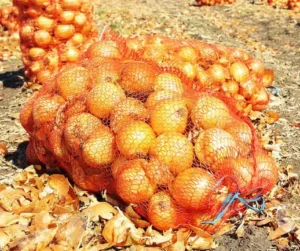
Washing and Preparing Vegetables
Before storing your vegetables, following proper cleaning and handling methods is crucial. It not only ensures food safety but also helps maintain quality and freshness. Research has shown that clean vegetables are less likely to develop mold and spoil.
Here’s a step-by-step guide:
- Rinse vegetables under running water to remove dirt and any contaminants.
- Allow the vegetables to air-dry completely. Moisture can lead to rotting.
- Trim off any damaged/wilted parts for prolonged freshness and spoilage reduction.
Classification and Partitioning
Divide and store vegetables in different bags to make the most of your mesh bags. You can keep them according to their types and storage needs. Each vegetable emits varying gases and has unique humidity requirements. So, mixing them can lead to odor and mutual influence.
Proper Ventilation and Humidity
Mesh bags provide good airflow, preventing the buildup of moisture. Ensure there’s enough space between vegetables within the bag.
You can regulate humidity by adding a damp cloth inside the mesh bag. It is useful for vegetables that need higher humidity level than usual.
Avoid Direct Sunlight
Direct sunlight can harm vegetable quality and freshness. Mesh bags can be a helpful tool to prevent sunlight exposure to vegetables. Sunlight exposure can speed up the ripening process in some vegetables. The ripeness leads to a shorter shelf life.
Storage Recommendations for Common Vegetables
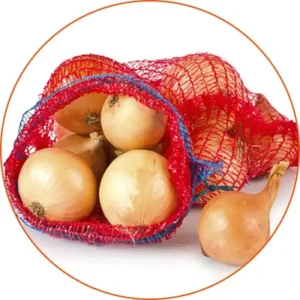
Root Vegetables (e.g., potatoes, carrots)
Store these in a separate mesh bag. Root vegetables prefer a cool, dark place with moderate humidity. A temperature range of 32-38°F is ideal. Avoid storing them near appliances that emit heat, such as the oven or the stovetop.
Leafy Greens (e.g., lettuce, spinach)
These vegetables benefit from a mesh bag with good air circulation. The crispier drawer of your fridge is the best place for leafy vegetables. 0-2°C temperature is ideal for leafy vegetable storage.
Fruits and Vegetables (watermelon, cucumber)
Store fruits and vegetables in different mesh bags to prevent flavor transfer.
For fruits like watermelon and onions, room-temperature storage is usually suitable. Cucumbers are best stored in the refrigerator.
Stem Vegetables (celery, lettuce, etc.)
Trim any wilted or damaged parts of stem vegetables. Wrap the vegetables in a slightly damp paper towel before placing them in the mesh bag. Store the mesh bag in the crisper drawer of your refrigerator. It will provide the ideal humidity and temperature for stem vegetables.
Other Storage Tips and Considerations
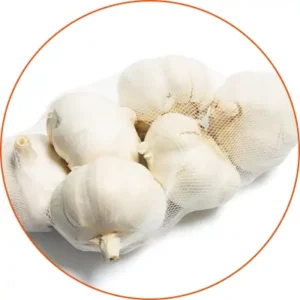
Avoid Excessive Storage and Accumulation
- Ensure enough space in the mesh bag for proper air circulation
- Use older vegetables before fresher ones to prevent spoilage and waste
- Regularly inspect stored vegetables for signs of rot. Remove any damaged ones to prevent further spoilage
Regularly Inspect and Clean Mesh Bags
- Check the mesh bags for signs of mold or debris
- Hand-wash the bags with mild soap and warm water when necessary. Allow them to dry completely
- Periodically sanitize the bags by submerging them in a water and disinfectant or vinegar. Rinse and dry thoroughly
Handling and Preparation Recommendations before Consumption
- Wash vegetables before consumption to remove contaminants or residues
- Check for spoilage before using stored vegetables and discard any in poor condition
- Use clean cutting boards and knives. Wash hands before handling vegetables to ensure food safety
- Consume vegetables promptly for better taste and nutritional value
- After preparation, store vegetables outside the mesh bags in appropriate containers. It will maintain freshness and prevent drying or odor absorption
Conclusion
Utilizing mesh bags enhanced air circulation, reduced moisture buildup, and extended vegetable freshness. By following the best practices, you can maintain the quality of your vegetables for long. So, embrace mesh bags as a sustainable and efficient storage solution. These bags will not only save the environment but also ensure that the vegetables on your plate remain at their freshest. Make the switch to mesh bags and experience the difference in your produce storage today.

